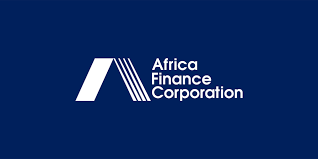Nigeria, Egypt, and Morocco were the top three African countries that received the highest remittances from their diaspora communities in 2024, according to the newly published State of Africa’s Infrastructure Report 2025 by the Africa Finance Corporation (AFC).
The report, which was released to give insights into Africa’s infrastructure and financing trends, revealed that Africa received over $95 billion in total remittances in 2024, a figure that nearly matched the total Foreign Direct Investment (FDI) inflows into the continent within the same year. The AFC stated that remittances from Africans living abroad have remained one of the most reliable sources of external finance, even outperforming other financial inflows such as official development assistance (ODA) and portfolio investments.
In the report, the AFC highlighted the increasing importance of diaspora remittances in national economies, noting that such funds are primarily used for household consumption and meeting family obligations. However, the corporation also pointed out the potential to channel this stable flow of funds into more productive and structured investment initiatives across the continent.
The report stated: “In 2024, Africa received over $95 billion in remittances from its global diaspora, an amount roughly equivalent to total FDI inflows to the continent that year. The largest recipients were Egypt, Nigeria, and Morocco, followed by a growing number of mid-sized economies with substantial emigrant populations.”
It further explained that the resilience of remittances has positioned them as a dependable source of finance in comparison to the volatility often associated with FDI and aid, especially during global economic uncertainties. The report added that, except for 2024, remittances had consistently outpaced FDI inflows to Africa for several years.
Nigeria, which has one of the largest diaspora populations in the world, continues to benefit significantly from overseas remittances, which contribute notably to the country’s foreign exchange earnings and household income. Egypt, with a long-standing history of labour migration to the Gulf and Europe, also remains a top receiver of inflows from its nationals abroad. Morocco similarly maintains a strong financial link with its large expatriate communities in France, Spain, and other European countries.
The AFC report identified several ways African nations can maximise the long-term impact of these remittance flows. It suggested that while most remittances are currently spent on family needs and social obligations, they can be redirected into structured financial products such as diaspora bonds and infrastructure development funds.
“Remittances reveal the presence of trusted financial channels that could be leveraged for more structured investments, particularly through instruments such as diaspora bonds,” the report stated.
Some African countries have already experimented with diaspora bonds. For instance, Ethiopia issued a diaspora bond in 2011 to support the construction of the Grand Renaissance Dam. Nigeria and Egypt have also floated diaspora-targeted instruments in the past, with varying levels of success. Kenya attempted similar moves in its infrastructure financing strategy.
However, the AFC observed that despite the potential, success in using remittances for infrastructure and investment has been mixed across the continent. It recommended several measures to improve outcomes, including building investor confidence through strong governance, reliable repayment structures, and legal safeguards to protect investors’ interests.
It also emphasised the need to address macroeconomic risks such as exchange rate instability and inflation. According to the AFC, diaspora instruments can gain more traction if issued in foreign currencies, indexed to inflation, or structured to offer competitive returns that appeal to global investors.
“Unlocking the full investment potential of remittance-linked capital will depend on how well African governments can create an enabling environment. This includes sound policies, transparent institutions, and financial products that meet global standards,” the report concluded.
As African countries continue to grapple with low levels of foreign investment and developmental challenges, diaspora remittances offer a growing opportunity for alternative financing, especially when directed toward long-term infrastructure and national development goals.
